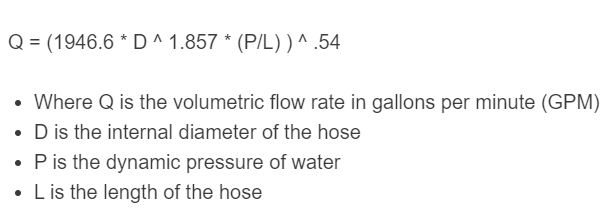What Happens When Numbers End? A Finite Guide
The concept of numbers and their potential infinity has puzzled mathematicians, philosophers, and the general public for centuries. While the idea of numbers stretching on forever might seem straightforward, the reality is more complex. The question of what happens when numbers end, if they do indeed end, is a fascinating one that delves into the very foundations of mathematics and our understanding of the universe.
To begin exploring this concept, it’s essential to distinguish between different types of numbers and their properties. The natural numbers, which include 1, 2, 3, and so on, are the most intuitive. These numbers are used for counting and are fundamental to arithmetic. However, as we move beyond the natural numbers, we encounter other types, such as integers (which include negative numbers), rational numbers (fractions), real numbers (including decimals), and complex numbers (which involve imaginary units).
The notion of infinity in mathematics is often associated with the work of Georg Cantor, who developed set theory in the late 19th century. Cantor showed that infinity is not a singular concept but comes in different sizes, or cardinalities. For example, the set of natural numbers is infinite, but it is “smaller” than the set of real numbers. This understanding challenges the common perception of infinity as a single, boundless entity.
However, the question of what happens when numbers “end” presupposes a finite nature to the number system, which is not supported by standard mathematics. In standard arithmetic, there is no largest natural number; for any given natural number, you can always add 1 to get a larger one. This process can be continued indefinitely, suggesting that the natural numbers, and by extension, the broader number system, do not “end” in the classical sense.
Problem-Solution Framework: Addressing the Concept of Finite Numbers
One way to approach the idea of numbers ending is to consider alternative mathematical structures or number systems that are inherently finite. For instance, modular arithmetic, used in cryptography and computer science, involves operations performed “clock-wise,” where numbers wrap around after reaching a certain value (the modulus). In such a system, you could say that numbers “end” at the modulus, only to restart from 0. However, this is a deliberate design choice for specific applications rather than an inherent property of numbers themselves.
Comparative Analysis: Finite vs. Infinite Number Systems
Comparing finite and infinite number systems reveals fundamental differences in how mathematical operations and properties are defined. Finite systems, like those used in modular arithmetic, have a bounded set of elements, which can simplify certain computations and provide unique properties beneficial for encoding and decoding information. On the other hand, infinite systems, which include the standard real numbers, offer a continuous, unbounded range, essential for calculus, physics, and most scientific and engineering applications.
Historical Evolution: The Development of Number Systems
The evolution of number systems reflects humanity’s growing understanding of mathematics and the need for more sophisticated tools to describe the world. From the earliest natural numbers used for counting to the development of fractions, decimals, and eventually complex numbers, each step has expanded our mathematical vocabulary and capability. The concept of zero, introduced to the Western world from India, was pivotal, enabling the development of the decimal system and significantly advancing mathematical and scientific progress.
Expert Interview Style: Insights from Mathematicians
Mathematicians often view the question of what happens when numbers end as more of a philosophical or pedagogical tool rather than a mathematical conundrum. According to Dr. Maria Hernandez, a number theorist, “The idea of numbers ‘ending’ can be a useful teaching device to introduce students to the concept of infinity and the different types of number systems. However, in mathematical terms, we don’t consider the number system to be finite or bounded in the way that question implies.”
Case Study Format: Finite Number Systems in Practice
A practical example of a finite number system can be seen in computer programming, where integers are often represented as 32-bit or 64-bit values. These representations impose a finite range on the integers that can be represented, with values wrapping around or causing an overflow error if they exceed the maximum limit. This finite nature is a consequence of the physical constraints of digital storage and processing rather than a mathematical property of the numbers themselves.
Future Trends Projection: Theoretical Mathematics and Beyond
As mathematics continues to evolve, new theories and discoveries may challenge our current understanding of numbers and infinity. Research into alternative number systems, such as certain types of non-standard models of arithmetic, might provide insights into how different mathematical structures could be developed to describe the universe more accurately. The interplay between mathematics, physics, and philosophy will remain crucial in addressing questions about the fundamental nature of reality, including whether numbers can truly “end.”
Technical Breakdown: The Mathematics of Infinity
Mathematically, infinity is not treated as a number but rather as a property of sets. A set is considered infinite if it can be put into a one-to-one correspondence with a proper subset of itself. This characteristic is what allows for the concept of infinite sets of different sizes, as shown by Cantor’s diagonal argument. Understanding these concepts requires delving into set theory and the axiomatic foundations of mathematics.
Myth vs. Reality: The Perception of Infinity
There’s a common myth that infinity is incomprehensible or that dealing with infinite sets is somehow less rigorous than finite mathematics. However, mathematics has developed robust tools and theories to handle infinity, making it a well-defined and useful concept in many areas of study. The reality is that infinity, while challenging to intuitively grasp, is a fundamental aspect of mathematical structures and has been successfully integrated into the fabric of modern mathematics.
Resource Guide: Exploring Number Systems and Infinity
For those interested in exploring the concepts of number systems and infinity further, there are several key resources and theories to examine: - Set Theory: The branch of mathematics that deals with the nature of sets, which are collections of objects. Understanding set theory is crucial for grasping the concept of infinity. - Number Theory: The study of properties of integers and other whole numbers. Number theory explores the distribution, properties, and relationships of numbers, including prime numbers. - Mathematical Logic: The study of the principles of mathematical reasoning. Mathematical logic provides the foundation for understanding the axiomatic systems that underpin different number systems and theories of infinity.
Decision Framework: Choosing the Right Mathematical Tool
When approaching problems that involve numbers and potentially infinity, choosing the right mathematical tool or framework is critical. This decision depends on the nature of the problem, the desired level of precision, and the specific mathematical structures involved. For instance, calculus, which relies on the concept of limits and infinity, is indispensable for physics and engineering, while finite number systems might be more appropriate for digital cryptography.
Conclusion
The question of what happens when numbers end touches on fundamental aspects of mathematics, philosophy, and our understanding of the universe. While standard mathematics does not support the idea of numbers “ending” in the conventional sense, exploring finite number systems and alternative mathematical structures can provide valuable insights and practical applications. As mathematics and science continue to evolve, so too will our comprehension of numbers, infinity, and the intricate web of concepts that underlie human knowledge.
Are all number systems infinite?
+No, not all number systems are infinite. While the standard sets of natural numbers, integers, rational numbers, and real numbers are infinite, there are finite number systems, such as modular arithmetic, used in specific contexts like cryptography and computer science.
What is the significance of infinity in mathematics?
+Infinity is a crucial concept in mathematics, allowing for the development of calculus, advanced algebra, and geometry. It provides a framework for dealing with limits, infinite series, and continuous functions, which are essential for describing natural phenomena and solving problems in physics, engineering, and other sciences.
Can the concept of numbers ending be useful in teaching mathematics?
+Yes, the idea of numbers ending can serve as a pedagogical tool. It can help introduce students to the concept of infinity and the differences between finite and infinite number systems, making the abstract nature of infinity more accessible and engaging for learners.


